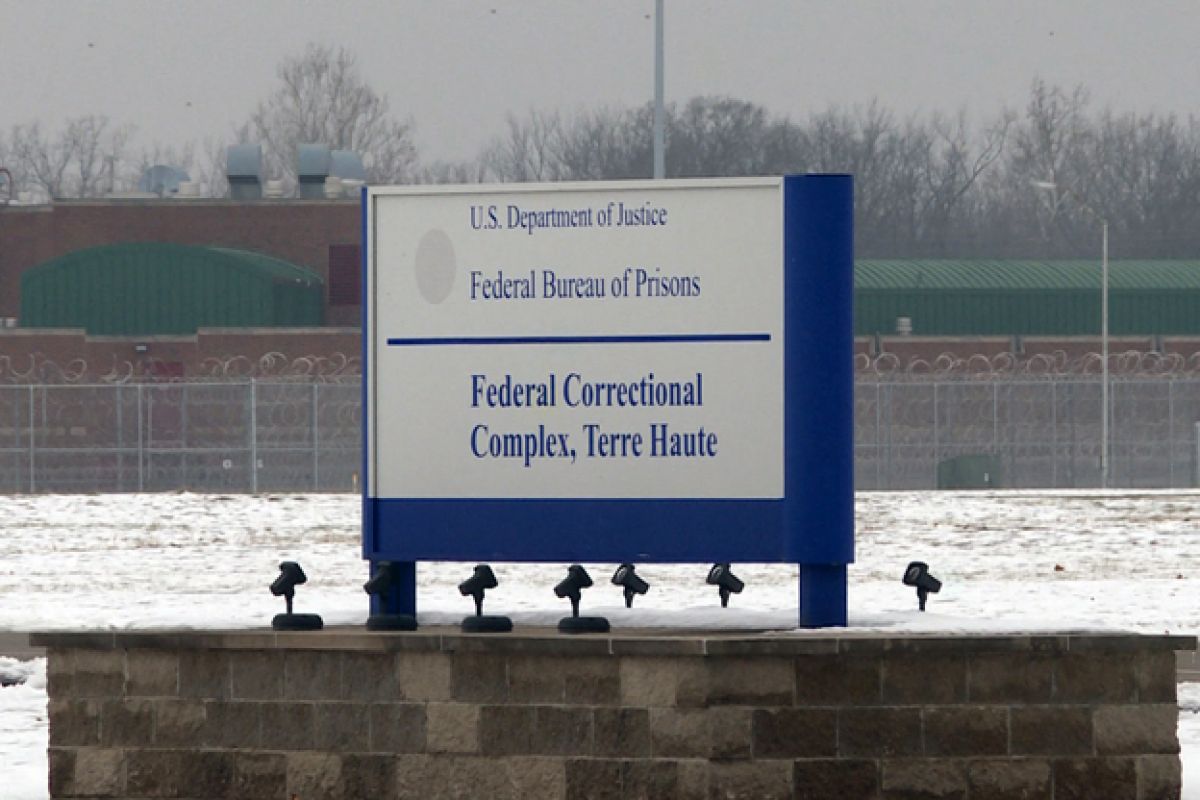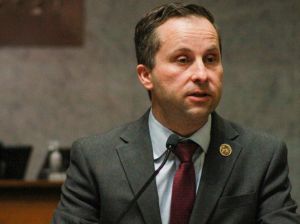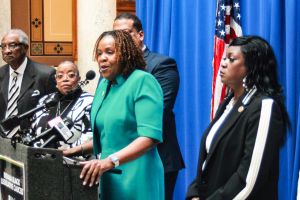
Federal death row prisoners are housed in Terre Haute. (WFIU/WTIU News)
President Trump is going after federal prisoners whose death sentences were commuted last month by former President Biden to life without parole.
While Trump can’t reverse Biden’s decision to grant clemency to 37 of the 40 prisoners on federal death row, he is signaling plans to target them in other ways.
Read more: DOJ drops lethal injection protocol used in Terre Haute executions
In an executive order signed Monday, Trump instructed U.S. Department of Justice officials to evaluate the prisoners’ places of confinement and conditions.
“The Attorney General shall evaluate the places of imprisonment and conditions of confinement for each of the 37 murderers whose Federal death sentences were commuted by President Biden, and the Attorney General shall take all lawful and appropriate action to ensure that these offenders are imprisoned in conditions consistent with the monstrosity of their crimes and the threats they pose,” Trump’s order said.
“The Attorney General shall further evaluate whether these offenders can be charged with State capital crimes and shall recommend appropriate action to state and local authorities.”
All federal death sentences are carried out at a high-security prison in Terre Haute, which houses the nation’s sole federal execution chamber. During the final months of the first Trump administration, U.S. officials executed 13 prisoners there.
Read more: Trump says lifting federal executions ban a ‘day one’ priority
In December, President Biden commuted the sentences of 37 of the 40 prisoners sentenced to death at the federal level. Biden said at the time that he feared Trump would restart executions that Biden’s administration put on hold in 2021.
According to prisoners in Terre Haute, those who received commutation in December were notified that they would soon be moved elsewhere. One of those prisoners said that he and other prisoners received notifications Wednesday that they were to be relocated to a federal prison in Colorado that’s known for its harsh conditions, at least temporarily.
As of Wednesday, U.S. Bureau of Prison records showed that most of the 37 prisoners originally sentenced to death were still in Terre Haute.
A prison spokesperson didn’t immediately respond to inquiries.
Trump’s executive order also stated that the federal government would help death penalty states obtain lethal injection drugs such as pentobarbital. Indiana used the drug for the first time to execute a state prisoner in December, although it is commonly used in other states.
Last week, outgoing Attorney General Merrick Garland ordered the U.S. prison bureau to stop using that drug, citing reports of suffering during executions. Trump’s order didn’t address that decision but Garland’s successor could reverse it or introduce a new protocol.
The U.S. Senate Judiciary Committee will convene to vote on Trump’s choice to replace Garland, former Florida attorney general Pam Bondi, next week.
President Trump signed the executive order hours after taking the oath of office Monday, after pledging to restart executions after a four-year pause.
Trump’s order, which condemned the Biden administration’s commutations, said that the justice department would pursue federal jurisdiction and the death penalty for cases involving the murder of a police officer and for capital crimes committed by someone in the country illegally.
However, experts say it will be difficult to resume federal executions quickly.
Read more: Chemical company stops making drug used in Terre Haute executions
“I think that as much as a Trump administration wanted to clear federal death row by executing everybody who was on it, it’s not going to have the opportunity to do that,” Robert Dunham, a death penalty expert, said in an interview ahead of Trump’s inauguration.
Dunham said that those whose death sentences weren’t commuted have outstanding appeals that are unlikely to be resolved during the four years of Trump’s second term.
The cases of four other prisoners on military death row, whose executions would be carried out in Terre Haute, raise a number of complex legal issues that are unlikely to be resolved soon, according to Dunham.











